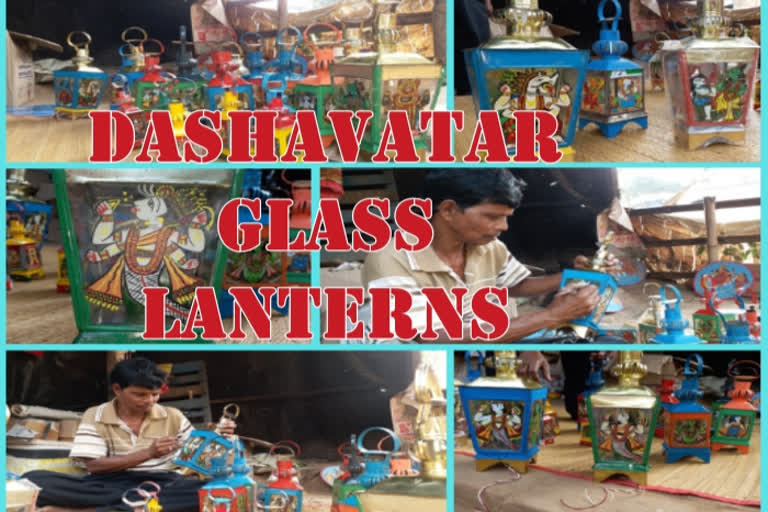Bankura(West Bengal): The flicker inside the lanterns used to be an iconic symbol for most Railway stations across the country before the authorities phased them out and are now turning towards LED lamps.
Many households also had those flickers lighting up their lives, which dates back to history. From paper to bamboo sticks and then holding the hands of the British, oil-filled lanterns have been a regular feature across India.
At a distance of around 132 km from Kolkata, lies the quaint town of Bishnupur once considered the nerve-centre of Bengal's rich culture and heritage.
Read:| Superstar Rajinikanth meets 'Pranav', a differently abled artist
For almost a thousand years, Bishnupur was the capital of the legendary Malla kings and the land was then known as Mallabhum. Before their power waned along with the decline of the Mughal empire, architecture, pottery, terracotta craft and the exquisite Baluchari sarees made of Tussar Silk reached its zenith under the patronage of Malla ruler Veer Hambir, the 49th ruler of the dynasty.
As history has it, Hambir was introduced to playing cards during his trip to Delhi and his interactions with Emperor Akbar. On return, the king, who was a follower of Vaishnavism, adopted the game in a very Bengali-style and commissioned the creation of Dashavatar Taash, a unique set of hand-painted cards depicting the ten incarnations of Lord Vishnu.
Both the Dashavatar Taash and the oil lanterns, which were signature products from Bishnupur, have lost their sheen over the period. High production costs and lack of popular use have also contributed to making them a dying art.
The Bishnupur block administration has recently decided to blend the two and revive the art of Dashavatar Taash along with the lanterns. The clear glass surrounding the lanterns are being hand-painted with the Dashavatar motifs and are being turned into decorative lanterns.
Read:| Keeping Kannada alive - Yakshagana way
“We are not going back to the ages of oil lanterns. We have replaced them with LED or electric as well as battery sourced lights. Some are made in such a way that incensed and decorative candles can also be used as a light source. Once the lights are turned on, the motifs come to life in their unique style of art. They are truly a collector's delight,” says a senior official of the block administration.
Meanwhile, this revival has also made the artisans happy.
“We were virtually rendered jobless due to less patronisation and low demand. This push by the block development authorities has given us a new lease of life. We only hope that our work reaches all corners,” said one of the artisans.
Bishnupur is again ready with its unique art forms, only this time it is fusion.



